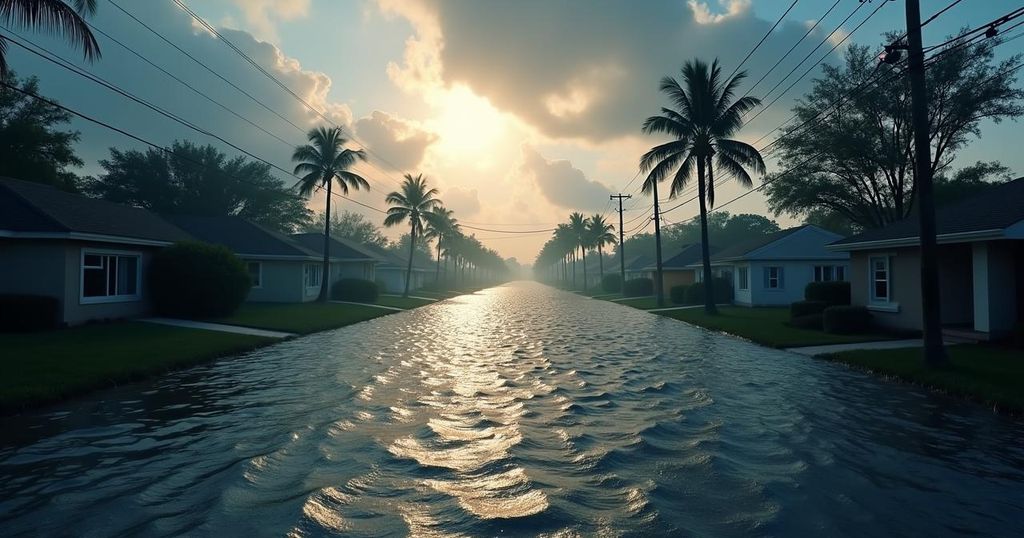Hurricane Helene has caused catastrophic damage across the Southeastern U.S., resulting in at least 69 fatalities and billions in estimated losses. Recovery efforts are ongoing as states assess the destruction and work to restore essential services affected by the storm.
States in the Southeastern United States are engaged in extensive recovery and cleanup efforts following the devastating impact of Hurricane Helene. The storm brought significant wind, rain, and storm surges, resulting in power outages for millions, destruction of infrastructure, and severe flooding from Florida to Virginia. As emergency services continue to respond, the death toll has tragically reached at least 69 fatalities according to a tally by Reuters, with fears that more victims may still be uncovered. Among the states affected, South Carolina has suffered the highest number of casualties, reporting 25 deaths, many attributed to falling trees. Governor Henry McMaster remarked, “It is a devastating blow, but we can make it through. Help is on the way, but it is going to take time.” In North Carolina, the toll has risen to 11, with Governor Roy Cooper advising that all roads in western regions should be considered impassable and will require months of repair. Assistance including food and water is being airlifted to affected areas, with citizens facing blackouts and significant delays in obtaining fuel. Approximately 2.7 million customers were without power as of Sunday, a significant reduction from previous counts due to the catastrophic conditions that extended far inland. The damage estimates post-Hurricane Helene range substantially, from $15 billion to potential figures surpassing $100 billion. The Federal Emergency Management Agency (FEMA) reported widespread damage to water systems, communications, and critical transportation routes, and the Army Corps of Engineers is mobilizing to assess and restore water system functionality. Florida’s Gulf Coast felt the brunt of Hurricane Helene as it made landfall, leading to the deaths of 11 individuals, primarily due to 15-foot storm surges that affected long-standing homes. Survivors expressed deep emotional loss over the destruction of family homes that have been in their lineages for generations. In Georgia, 17 individuals, including children, lost their lives, as confirmed by Governor Brian Kemp following his assessment of the damage in Valdosta. This catastrophe prompted President Joe Biden to state, “It is tragic.” His comments came a day after he declared a major disaster in Florida.
Hurricane Helene was a potent storm that impacted several states along the Southeastern U.S. It created significant challenges across Florida, Georgia, North Carolina, South Carolina, and Virginia, leading to widespread devastation that necessitated emergency declarations and responses. The storm not only resulted in human casualties but inflicted severe economic damage and infrastructure loss, making recovery efforts a priority for state governments and federal agencies alike. The scale of the destruction highlighted the vulnerability of many communities to extreme weather events and the ongoing challenges of climate-related phenomena.
Hurricane Helene has resulted in a pressing humanitarian crisis following its passage through the Southeastern United States, leading to substantial loss of life, widespread infrastructure damage, and significant financial repercussions estimated in the billions. Recovery efforts are underway, but numerous communities remain impacted by lack of power, damaged property, and inaccessible roads. The responses from state and federal officials indicate a coordinated effort to address the crisis, although complete recovery will take considerable time and resources.
Original Source: www.cnbc.com







